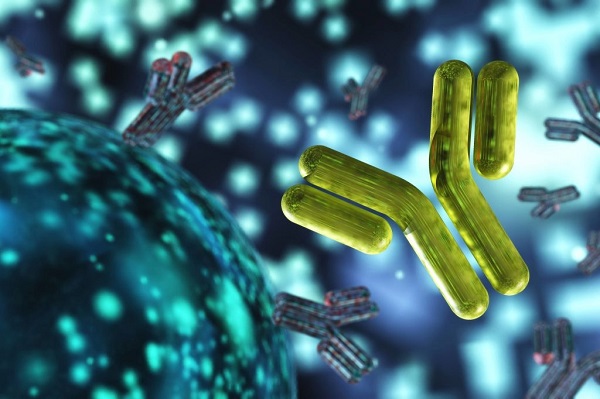COVID-19 có thể làm gia tăng nguy cơ mắc bệnh tiểu đường?
Theo Viện Y tế Quốc gia Mỹ (NIH), khi một người bị nhiễm COVID-19, virus SARS-CoV-2 trong cơ thể bệnh nhân có thể làm suy giảm các tế bào sản xuất insulin của cơ thể. Điều này có thể dẫn đến bệnh tiểu đường.

Ảnh minh họa
Nói về phát hiện kể trên của NIH, Bác sĩ Thomas Russo (làm việc tại Đại học Buffalo) cho biết, cần có nghiên cứu sâu hơn, nhiều hơn về những hậu quả sức khỏe tiềm ẩn lâu dài của việc bị nhiễm bệnh. Bởi nếu người bệnh COVID-19 mắc bệnh tiểu đường, sẽ ảnh hưởng tới suốt quãng đời còn lại.
Bệnh tiểu đường xảy ra khi lượng đường trong máu (đường huyết) quá cao. Đường huyết là nguồn năng lượng chính của cơ thể và đến từ thực phẩm khi chúng ta ăn vào. Thông thường, lượng glucose đó thông qua insulin (một loại hormone do tuyến tụy tiết ra) để đưa đến các tế bào (nơi glucose sẽ được sử dụng để tạo năng lượng).
Tuy nhiên với bệnh tiểu đường, cơ thể không tạo ra đủ insulin hoặc không sử dụng tốt loại hormone này. Điều đó có nghĩa là glucose sẽ không vận chuyển đến các tế bào sẽ nằm trong máu và có thể gây ra một loạt các vấn đề sức khỏe nghiêm trọng, như bệnh tim, tổn thương thần kinh, các vấn đề về mắt và bệnh thận.
Bệnh tiểu đường cũng được chia thành hai loại chính: Bệnh tiểu đường loại 1 (là khi cơ thể không tạo ra insulin do hệ thống miễn dịch tấn công và phá hủy các tế bào tạo ra insulin trong tuyến tụy) và bệnh tiểu đường loại 2 (là khi cơ thể không tạo ra hoặc sử dụng insulin một cách hiệu quả). Cả hai loại bệnh tiểu đường đều không có cách chữa khỏi, nhưng bệnh có thể được kiểm soát bằng thuốc kết hợp với chế độ ăn uống và luyện tập.
Các nhà khoa học đã tập hợp được một báo cáo tổng hợp từ tám nghiên cứu được thực hiện trên khắp thế giới từ tháng 1 đến tháng 5 năm 2020 về các trường hợp mới được chẩn đoán bệnh tiểu đường ở những người có COVID-19.
Trong báo cáo đã đề cập tới việc các nhà khoa học xem xét 3.711 bệnh nhân và kết quả cho thấy rằng 14,4% (492 bệnh nhân) được chẩn đoán mắc mới bệnh tiểu đường. Điều này chứng minh mối liên quan giữa nhiễm trùng COVID-19 và bệnh tiểu đường. Theo các nhà nghiên cứu, bệnh tiểu đường mới được chẩn đoán ở bệnh nhân COVID-19 có thể là do phản ứng căng thẳng liên quan đến bệnh nặng hoặc điều trị bằng glucocorticoid (tác dụng phụ gây bệnh tiểu đường) trong điều trị COVID-19.
Hai nghiên cứu mới do NIH hỗ trợ đã nghiên cứu sâu hơn về mối liên quan này, từ bên trong cơ thể. Các nhà khoa học đã tìm thấy và xác nhận sự lây nhiễm tế bào beta tuyến tụy trong các mẫu khám nghiệm tử thi của những người chết do COVID-19-và thấy rằng SARS-CoV-2 có thể "lây nhiễm ưu tiên" những tế bào sản xuất insulin này.
Nghiên cứu mới cũng phát hiện ra rằng nhiễm trùng coronavirus cũng có thể thay đổi các cụm tế bào được gọi là đảo nhỏ trong tuyến tụy, nơi chứa các tế bào beta. Cụ thể, cả hai nhóm nghiên cứu đều phát hiện ra rằng mô đảo tụy bị giảm sản xuất và giải phóng insulin sau khi bị nhiễm coronavirus - và đôi khi, nhiễm trùng cũng dẫn đến cái chết của một số tế bào beta.
Hai nghiên cứu do NIH tài trợ đã được thực hiện thông qua khám nghiệm tử thi ở những người đã chết do COVID-19 để xem chính xác cách nhiễm trùng SARS-CoV-2 có thể ảnh hưởng đến các tế bào tuyến tụy, đặc biệt là các tế bào beta sản xuất insulin. Vì vậy, cần nhiều nghiên cứu hơn nữa để làm rõ cách thức SARS-CoV-2 ảnh hưởng đến tuyến tụy và hệ thống miễn dịch có thể đóng vai trò gì trong việc gây ra bệnh tiểu đường.
Bảo An